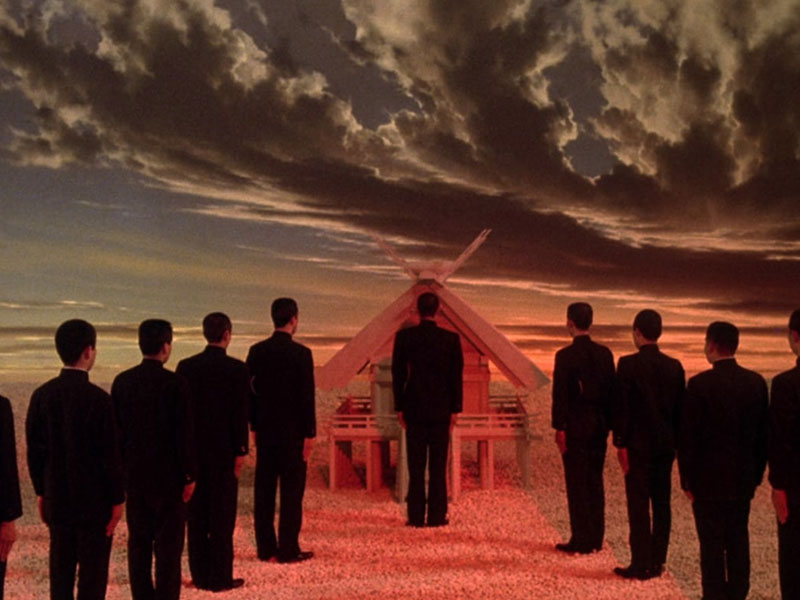Cinema Partenio | sala 3 | at 9.15pm
Directed by: Paul Schrader
Starring: Ken Ogata, Masayuki Shionaya, Naoko Otani
Year: 1985
Country: Japan, United States
Running Time: 120’
Produced by: ZOETROPE STUDIOS FILMLINK INTERNATIONAL LUCAS FILM
Distributed by: RETEITALIA, PIC
Plot: Set entirely on the final, spectacular day of its subject’s controversial life, Mishima remains in many respects a unique film. Paul Schrader’s brother Leonard had lived and taught in Japan, which no doubt gave the pair confidence to devise their bold approach to combining extracts from the author’s work with his early life, and the events leading up to his very public death. As a post-war writer, Yukio Mishima had been considered a potential Nobel laureate, but he was also a fanatical traditionalist who founded his own martial cult devoted to reinstating the emperor’s authority, and in this Japanese context, problematically bisexual. The Schraders’ film dramatizes scenes from Mishima’s youth and career, before his meticulous preparations for a largely symbolic 1970 coup attempt that would end in ritual suicide, and intersperses these with stylised dramatisations of episodes from three of his novels. What helped make such unconventional material accessible to an international audience – although it remains subject to legal objections by Mishima’s family in Japan – was the flamboyant surreal imagery of fashion designer Eiko Ishioka, the richly varied contribution of cinematographer John Bailey, ranging from documentary-style black-and-white treatment of the framing story to dream-like, colour saturated tableaux, and the ritualistic drive of music for string quartet by Philip Glass, being heard for the first time in a feature film after Koyaanisqatsi. All three would receive a special Cannes Festival prize for ‘best artistic contribution’, recognising what Roger Ebert hailed as a “rather glorious project, in these days of pragmatic commercialism and rank cynicism in the movie industry”, while the film’s executive producers Francis Ford Coppola and George Lucas were rewarded with predictably slender returns from the film’s release, possibly compensated by the knowledge that they had made possible a true original. (Ian Christie)

